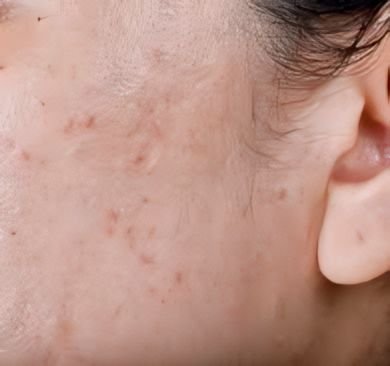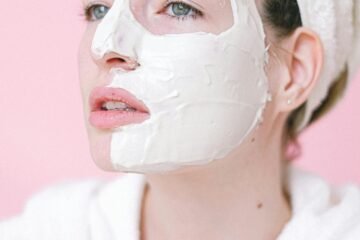skin care during pregnancy

st over-the-counter skin care products are safe during pregnancy But, products containing retinoids, hydroquinone, and phthalates may not be safe. Gentler ingredients include aloe vera, coconut oil, and cocoa butter. Skin changes such as stretch marks, dryness, and hyperpigmentation can all happen during pregnancy
1 • Pregnancy causes many changes in a woman’s body due to hormonal changes • To maintain healthy and beautiful skin during pregnancy, you may need to reconsider your skincare routine. • You need to learn what products are safe for you – and your baby – to use on your skin during your pregnancy.Skin care during pregnancy skin problems
- Retinoids – content of Acne medication Salicylic Acid – content of acne medication, facewashes, peels Discuss all herbal treatments. ‘Natural’ doesn’t always mean ‘harmless’ Do not take any oral/topical medications without doctors advice
- Acne is common during pregnancy and may last for several months even after delivery Many acne care products are safe during pregnancy; avoid retinoids and salicylic acid creams Oral : Avoid Isotretinoin, Tetracyclines
- Dark patches on the cheeks Prevent: Use sunscreens Treatment: pigment reducing creams that are safe in pregnancy – glycolic, kojic
- Darkening of skin- underarms, thighs, arms, abdomen Usually subsides on its own post pregnancy
- Most distressing skin manifestation due to stretching of the skin during pregnancy Prevent: Moisturize several times a day with creams containing cocoa butter/shea butter or almond oil
- Very common during and after pregnancy Prevent: healthy nutritious diet, iron rich foods Treatment : Only if severe, biotin supplements Avoid minoxidil and finesteride preparations
- Itching is a common symptom experienced by pregnant females Wheals or red bumps especially around the abdomen may be seen
Methods of Skin care during pregnancy skin problems
- Motherhood is your time to find new and innovative ways to raise a healthy, sound-minded person. Being a mother is both a beautiful and challenging life long event. Once you become a mother it never stops, it is eternal. But do not fully sacrifice your beauty.
- A woman can glow during pregnancy. However, since her body is undergoing various changes, it is also likely that her skin may require extra care and pampering during this period. Your diet will determine what your skin looks like and if you are on a healthy diet of fruits, vegetables, juices, whole grains then your skin will reflect this. In addition to a healthy diet you should also ensure that you sleep sufficient hours every night. Exercise regularly so that you feel fit and this is reflected in your skin.
- Pregnancy is usually a happy and joyful time during which you are preparing for your new arrival! But pregnancy is also a time of scary changes, both physical and emotional. Many women find it difficult to deal with all the different changes going on in their lives and in their bodies; others seem to relish in these changes. Body image is of particular concern during pregnancy. Often, how you feel about your pregnant body will directly impact how happy you are during your pregnancy. Why do people feel so different about their pregnant selves?
- During pregnancy, our bodies experience a roller coaster ride of hormonal ups and downs, which unfortunately cause symptoms such as nausea, food cravings and fatigue. And these same hormones can also take a toll on the overall appearance of our skin.
- That’s why proper pregnancy skin care is so important. So before you bury your head in the sand, find out what you can do to keep your skin looking as fabulous as you are.
- Common cosmetic skin problems. Common Tips How to manage skin changes during nine months Ingredients in skin care products to be avoided during Pregnancy Ingredients in skin care products can be used during Pregnancy
- Acne For women with naturally oily or acne- prone skin, be aware that you will become more prone to breakouts during pregnancy. These skin conditions worsen because of all those hormone changes that occur during pregnancy specially during the first trimester.
- Oily skin Due to excessive hormonal production, there is excess sebum production.
- Dry Skin Dry skin during pregnancy is usually brought on by a loss of bodily fluids. So in addition to your skin care routine, make sure you’re drinking plenty of water – 8 glasses a day to be precise!10. PUPPP Pregnancy hormones, They’re even responsible for a particularly unpleasant kind of skin eruption known as PUPPP (pruritic urticarial papules and plaques of pregnancy), or lesions in your stretch marks. Skin tags, or small, raised growths on the skin, are common during pregnancy, too, particularly under your arms.
- “noncomedogenic” and “unscented” when you’re buying makeup and skin-care products. “Oil free” will be less likely to add excess oils and clog up pores — good if your skin is on the oilier side to begin with. But if your skin is dry, you’ll do best to choose moisturizing products. If you see a dermatologist, always tell him or her that you’re expecting. Some drugs commonly used to treat acne, like Accutane and Retin-A, should not be used while you’re pregnant. Taking too many baths can strip your skin of its moisture. Stick to short showers (good training for actual motherhood) in warm (not hot) water, and use a mild moisturizing soap. For very dry skin, try a moisturizer or put a warm-mist humidifier in your room.
- For eczema, low-dose cortisone creams are usually safe, but talk to your practitioner and ask if he or she has recommendations. For redness on the palms of your hands, sit tight. This condition disappears after you give birth. Skin tags usually appear during pregnancy and disappear after delivery. If they don’t, a dermatologist can remove them in a flash.
13 Cholasma Noticed any brownish or yellowish patches of skin on your face? What you’re seeing in the mirror is the so- called “mask of pregnancy” (chloasma. If you’re prone to chloasma, you can minimize its effects by avoiding intense sunlight. The pigmentation will start to disappear after you give birth and your hormone levels begin to return to their pre-pregnancy levels. Sometime needed mild steroid to minimize the effect.
14 Acne Many women find that their faces break out more after they become pregnant. Try to keep your face as clean as possible using a mild cleanser. If you need to visit a dermatologist, make sure you inform her that you are pregnant. Mild based facial scrubs are best for unplugging oily pores. Mild salicylic may be helpful. - Stretch marks According to the studies, more than 90 percent of women develop stretch marks during the sixth and seventh months of pregnancy. Old fashioned cocoa butter to high-tech skin cream has little effect. What it need microdermabrasion, retin A therapy, laser etc.16. Pregnancy is also a time when special care should be taken to keep the skin healthy and glowing. While most commonly used products are completely safe, there is handful of ingredients considered harmful to a growing baby. Retinoids These powerful substances, found in some anti aging moisturizers, are lauded for helping reduce wrinkles and improve skin tone. Commonly used for the treatment of acne. It is advised by doctors to avoid during pregnancy and nursing.
- Salicylic acid Salicylic acid is another no-no for pregnant women. This mild acid is used to treat certain skin disorders, including acne, and you can find it in a number of skin products, such as cleansers and toners. BHA, or beta hydroxy acid, is a form of salicylic acid and is used in some topical exfoliants to reverse signs of aging. Do not confuse yourself with Alpha hydroxy acids, sometimes listed as AHAs, glycolic acid, or lactic acid, they are safe.
- Acne products Many women experience worst breakouts during the first trimester of pregnancy. The safest way to treat these breakouts is with a product that contains glycolic acid, alpha hydroxy acid, topical erythromycin. Generally, most dermatologists don’t recommend the use of topical retinoids (such as Retin-A or Differin) or salicylic acid — check product labels for ingredients
- Sunscreen Just because you ‘re pregnant does’t mean you can’t hit the beach. Sunscreen those penetrate the skin are perfectly safe. Preferable titanium dioxide and zinc oxide. Makeup Many makeup products are marked “ noncomedogenic” and “non acnegenic” meaning they are oil-free and don’t clog pores. They are safe. Avoid cosmetic that contain retinol or salicylic acid.
- When you are pregnant, it is important to discuss any product you use on your skin with your healthcare provider. If you have used any potentially harmful ingredients, don’t be panic. Simply stop using. “Most over the counter product by reputable brands are safe.” If you apply these product less then 10% of your total skin surface, the risks of systemic effects are very low. Who said pregnant women shouldn’t feel beautiful



2 Comments
Shafqat · 25 April 2024 at 08:05
Good job
Saeed khan · 25 April 2024 at 08:15
Nice